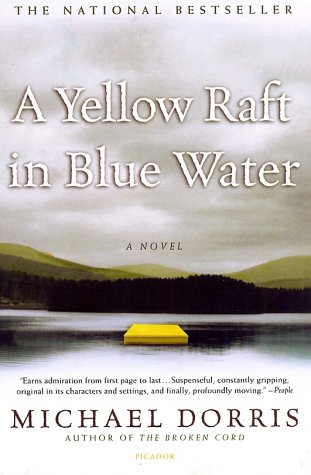 Our poor book was almost eclipsed by the Christmas potluck and all the great food. Discussion was nearly an after thought. And by the way, the extra food that we gave to the staff was just about completely gone by the time I left. I think they loved our potluck as much as we did!
Our poor book was almost eclipsed by the Christmas potluck and all the great food. Discussion was nearly an after thought. And by the way, the extra food that we gave to the staff was just about completely gone by the time I left. I think they loved our potluck as much as we did!Procrastinating, or perhaps I'm digressing? I came to this discussion having found this one of the difficult and painful books that we have read over the years. I was critical and judgmental of John March and couldn't think of anything good to say about him. My mother used to say, if you can't say anything nice, don't say anything at all. I expected a very short discussion.
Carolyn said that it took her a while to warm up to the book. I asked her how far "a while" was, and she said when she got to Marmee's voice, which was exactly my experience. We talked about March being impractical and struggled with how he took responsibility for everything but his family.
Luci said she thought her perspective might be different if she had read Little Women, and I have agree with her since I haven't read it either. We felt sorry for Marmee. As Grace put into words, she was married to a man who "lives for ideas," which left Marmee to the "practical matters of life." We struggled with his failure to provide for his family's welfare.
We rather dismised March as self-absorbed and it wasn't until after we had eaten, the discussion turned to how March and Marmee viewed the "packages" they had helped deliver, how their daughter was the one who spent time with the young pregnant Negro as a person. I remembered marking a selection from Marmee's voice: "A young Negro boy - are there no end to these people? - opened the door." My question was, what were Marmee's genuine feelings for Negros. Cheryl returned to March's unconditional attitude towards Ethan Canning's freed workers and how he even danced with them all night. We ended up thinking that March wasn't as much self-absorbed as he was heart broken by his inability to save these people that he had come to love.
We found ourselves at a loss to understand how little Marmee and March communicated their inner feelings, in spite of their commitment to their Quaker ideals - that she didn't want him to go to war and he read in her face that she was proud of him for volunteering. We talked a bit about how much of that was typical for the time period and how much was from their faith ideals. We agreed that this book earned it's Pulitzer Prize!
I left feeling much more sympathetic to March and the crossroads he found himself trapped in, and resolved that Little Women will find itself on my night stand very soon.










